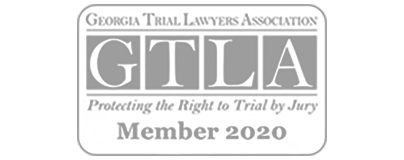Home | Griffin Personal Injury Lawyer | Qui Tam Whistleblower
Griffin Qui Tam Whistleblower Lawyer
As a whistleblower, speaking up about misconduct or illegal activities within an organization can be a courageous and ethically driven act. However, this act of bravery often comes with its own set of risks and challenges. Whistleblowers in Griffin, Georgia, like in many other states, may find themselves facing retaliation from their employers, which can result in various types of injuries – both physical and psychological.
Navigating Whistleblower Injury Claims in Griffin, Georgia
Let’s explore the legal protections available to whistleblowers in the state of Georgia, the common injuries they may suffer as a result of their actions, and the avenues for seeking recourse and compensation for these injuries. By shedding light on this important topic, we aim to provide valuable information and support to those who find themselves in the difficult position of blowing the whistle on wrongdoing.

Need To Do The Right Thing? Contact Us For A Free Consultation
Need To Do The Right Thing?
Overview of Whistleblower Laws in Griffin, GA
Whistleblower laws in Georgia are designed to protect individuals who report illegal or unethical activities within their workplace or organization. These laws aim to encourage employees to come forward with information about wrongdoing without fear of retaliation. Understanding the key aspects of whistleblower laws in Georgia is essential for both employees and employers to navigate these complex legal protections.
Explanation of Whistleblower Protections
In Georgia, whistleblowers are safeguarded under various state and federal laws, including the Georgia Whistleblower Act and the Georgia False Claims Act. These laws prohibit employers from taking adverse actions against employees who report violations of the law, fraud, waste, or abuse within the organization. Whistleblower protections extend to both public and private sector employees, ensuring that individuals can speak out without fear of losing their jobs or facing other forms of retaliation.
Types of Actions Covered Under Whistleblower Laws
Whistleblower laws in Georgia cover a wide range of actions that employees may report, including financial misconduct, safety violations, discrimination, harassment, and environmental violations. Employees who report such misconduct in good faith are protected under the law, regardless of whether the reported violation is substantiated. This broad scope of protection encourages individuals to report wrongdoing without fear of repercussions.
Key Requirements for Filing a Whistleblower Claim
To file a successful whistleblower claim in Georgia, individuals must meet certain requirements outlined in the relevant laws. These requirements may include reporting the violation to the appropriate authorities, documenting the misconduct, and following specific procedures for reporting within the organization. Understanding and adhering to these requirements is crucial for whistleblowers seeking legal protection and recourse for retaliation.
Overall, the whistleblower laws in Georgia provide essential protections for individuals who speak out against wrongdoing in the workplace. By familiarizing themselves with these laws and their rights, employees can feel empowered to report misconduct and hold employers accountable for their actions.

GRIFFIN PERSONAL INJURY LAWYER NEAR ME
Common Injuries Suffered by Whistleblowers
Whistleblowers play a vital role in exposing wrongdoing and holding individuals and organizations accountable. However, this act of courage often comes at a significant personal cost. Whistleblowers may experience a range of injuries as a result of their actions, including physical, emotional, psychological, and financial harm.
Physical Injuries Due to Retaliation
Whistleblowers who speak out against misconduct or illegal activities within their workplace may face various forms of retaliation. This can manifest in physical harm such as assault, threats, or even sabotage of personal property. In extreme cases, individuals have reported being physically attacked or experiencing health issues due to the stress and pressure of blowing the whistle.
Emotional and Psychological Impact of Whistleblowing
The emotional toll of whistleblowing can be profound. Whistleblowers often face isolation, ostracism, and hostility from colleagues and superiors. The fear of reprisal, job loss, and damage to their reputation can lead to anxiety, depression, post-traumatic stress disorder (PTSD), and other mental health issues. The psychological impact of blowing the whistle can be long-lasting and debilitating.
Financial Consequences of Whistleblower Retaliation
Whistleblowers may also suffer financial harm as a result of their actions. Retaliation can take the form of demotions, pay cuts, wrongful termination, or difficulty finding new employment due to a tainted reputation. The loss of income and benefits can have a significant impact on a whistleblower’s financial stability and future prospects.
Overall, the common injuries suffered by whistleblowers highlight the need for robust protections and support systems to safeguard individuals who come forward to report misconduct. Addressing these challenges is essential to encourage transparency, accountability, and ethical behavior in both public and private sectors.

Legal Recourse and Compensation for Whistleblower Injuries
Whistleblowers who suffer retaliation for exposing wrongdoing or illegal activities in the workplace often face significant challenges. However, there are legal avenues available to seek recourse and obtain compensation for the injuries they have endured. Understanding the steps to take after suffering whistleblower retaliation is crucial in pursuing a successful claim.
Steps to Take After Suffering Whistleblower Retaliation
- Document Everything. It is essential for whistleblowers to keep detailed records of the retaliation they experience, including dates, times, witnesses, and any relevant communications. This documentation will be crucial in supporting their claim.
- Seek Legal Counsel. Consulting with an experienced whistleblower attorney is vital in understanding your rights and legal options. A knowledgeable attorney can guide you through the process and help you navigate the complexities of whistleblower laws in Georgia.
- File a Complaint. Whistleblowers can file a complaint with the appropriate state or federal agency responsible for enforcing whistleblower protections. This step initiates an investigation into the retaliation and can lead to legal action against the offending party.
Types of Compensation Available for Whistleblower Injuries
- Lost Wages. Whistleblowers who experience retaliation may be entitled to compensation for lost wages resulting from demotions, suspensions, or wrongful termination.
- Emotional Distress Damages. Whistleblowers can seek compensation for emotional distress caused by the retaliation they have faced. This may include anxiety, depression, and other psychological injuries resulting from the retaliation.
- Reinstatement. In some cases, whistleblowers may be entitled to reinstatement to their former position if they were wrongfully terminated as a result of their whistleblowing activities.
Need a Free Consultation? Need a Skilled Attorney?
Free Consultation
Call (770) 771-5130
If you’ve been injured, you need to hire the best legal care to assist you with your claim. Get a FREE consultation today!
Challenges Faced in Pursuing Whistleblower Injury Claims
Despite the legal protections in place for whistleblowers, pursuing a claim for whistleblower injuries can be a complex and challenging process. Whistleblowers may face obstacles such as proving retaliation, dealing with employer pushback, and navigating the legal system.
It is important for whistleblowers to be prepared for these challenges and to seek the guidance of experienced legal counsel to help them navigate the process effectively. By understanding their rights and options, Griffin whistleblowers can take the necessary steps to seek justice and obtain the compensation they deserve for the injuries they have suffered.
Legal Recourse is Available for Griffin Whistleblowers
Whistleblowers play a crucial role in holding organizations and individuals accountable for unethical or illegal actions. Despite the protections offered by whistleblower laws in Griffin, Georgia, individuals who come forward often face significant risks and challenges, including retaliation in various forms. The injuries suffered by whistleblowers can be physical, emotional, and financial, impacting their well-being and livelihood.
Legal recourse is available for Griffin whistleblowers who have been injured as a result of their actions, but navigating the process can be complex and daunting. Seeking compensation for whistleblower injuries requires a thorough understanding of the applicable laws, documentation of damages, and persistence in pursuing justice.
As society continues to prioritize transparency and accountability, it is essential to recognize and support the individuals who have the courage to speak out against wrongdoing. By upholding whistleblower protections and advocating for the rights of those who expose misconduct, we can create a safer and more just environment for all individuals in the workforce.
GET A FREE CASE REVIEW
PRACTICE AREAS
CASE RESULTS
TESTIMONIALS
Randy M. describes a devastating car wreck and how The Jewkes Firm helped him negotiate with the insurance company and obtain a settlement.
AREAS WE SERVE
Frequently Asked Questions?
Do I need a personal injury attorney?
The Jewkes Firm is well-versed in effectively challenging major insurance companies on your behalf to secure the highest settlement permissible by law. Our primary objective is to ensure your optimal recovery. It is only after this point that we assess the worth of your case.
What is the deadline for filing an injury case in Georgia?
The timeframe for filing an injury case, also known as the statute of limitations, can vary significantly. As per OCGA §9-3-33, you are granted a two-year period from the date of your injuries or the passing of a family member to initiate your personal injury claim.
What is the cost to hire a personal injury attorney?
There is no upfront cost associated with hiring a personal injury lawyer. Our fees are based on a percentage of your settlement, meaning you only pay if we successfully recover compensation. Our top priority is ensuring your well-being and helping you return to your normal life.
What damages can you recover from a personal injury?
A personal injury lawyer aims to establish negligence and seek restitution for the harm caused by the liable party. Additionally, you may be entitled to compensation for funeral costs, medical expenses, and income lost if you are a family member of someone who died as a result of an injury.
Free Case Evaluation












